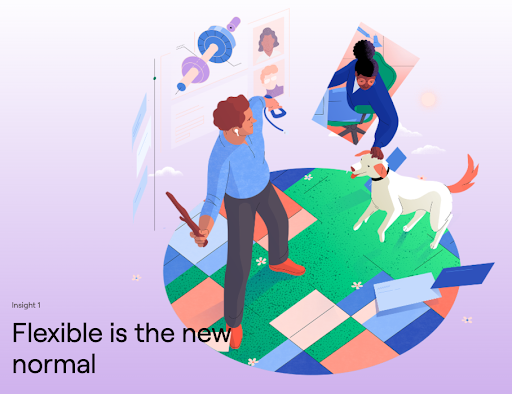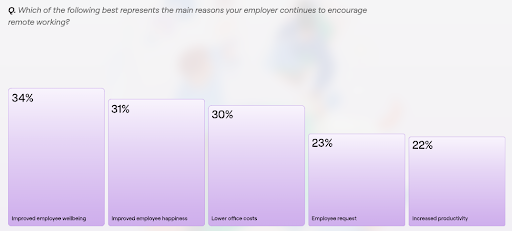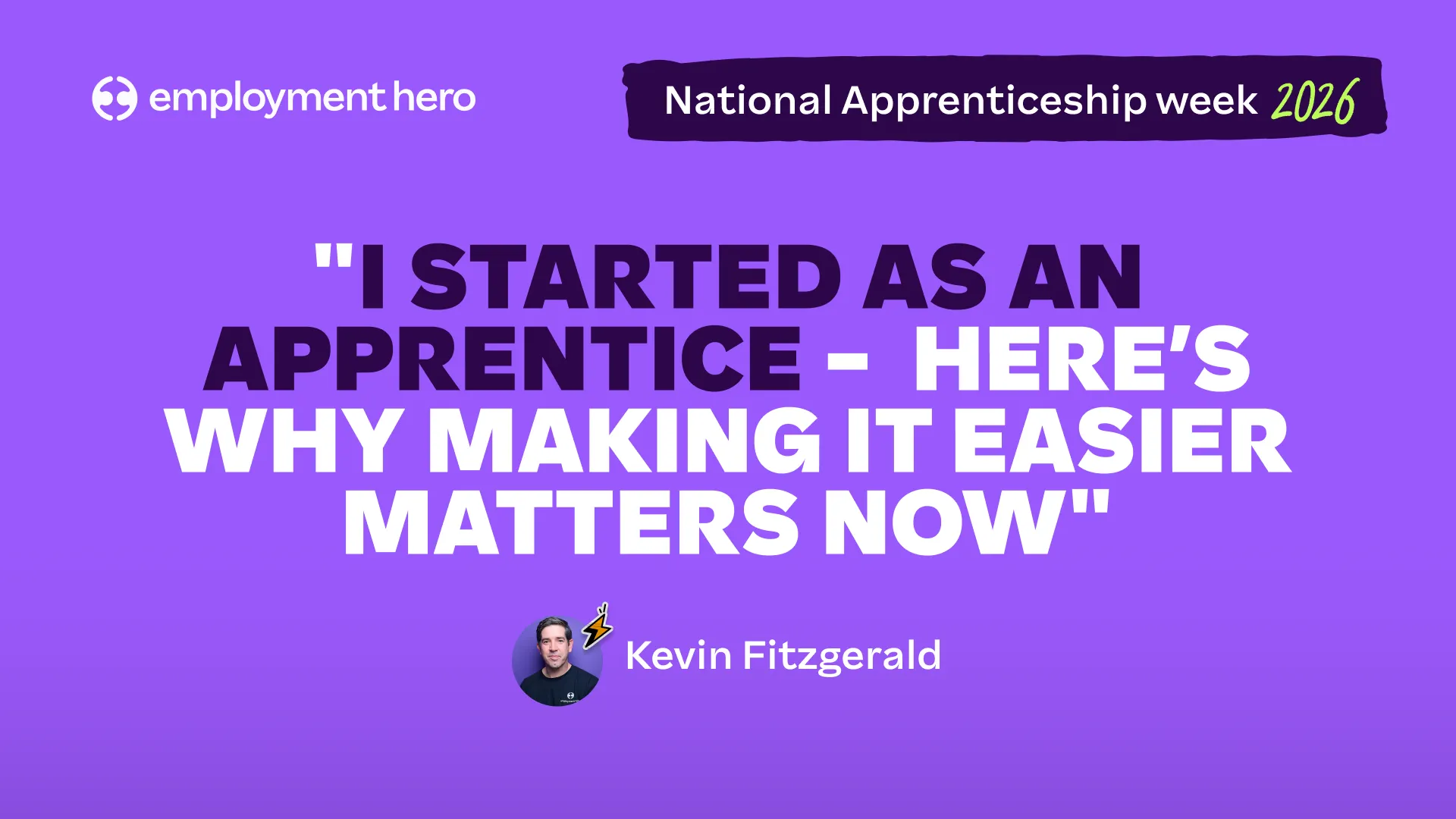What is a duvet day and how does it work?
Monday blues kicking in? Your team might be in need of a duvet day. Here’s what you need to know.

If you find that you’re increasingly having one of those days where you simply cannot get out of bed. You are not alone. For some, the struggle is very real.
Seasonal affective disorder is just one of the things that could be causing your employees to experience the Sunday scaries. Which means you might want to consider implementing a cosy duvet day to look out for your team’s wellbeing.
After all, a happy team is a productive team. It’s better than them having to pull a sickie and can bring with it a lot of long-term benefits.
Let’s unpack exactly what we mean by a duvet day and things you should consider if you’re looking to implement one.
What does duvet day mean in the UK?
Ever had one of those days where you wanted to pull a sickie? You’re not alone.
To combat this, a duvet day was first coined by a UK company called August One Communications back in 1997 to give their team time off that wasn’t pre-planned.
And it looks like it’s making a comeback. Why? The ONS reported levels of personal wellbeing deteriorating and these levels haven’t risen.
With burnout on the rise, and a surge in sickness absence rate here in the UK, incorporating duvet days can have many benefits and more importantly – prevent your high-performing teams from reaching breaking point.
Read more: Sickness Absence Policy Template
Duvet days in practice
You’ve got the theory behind why a duvet day is good. But what about the actual implementation of it?
If you’re considering offering duvet days, here are some typical questions asked about how to incorporate it and our top tips.
1. How do you incorporate duvet days?
There isn’t a one-rule-fits-all scheme when it comes to duvet days. It varies from company to company.
After choosing the number of duvet days you want to offer (typically around 1 to 2 days per year per employee), the popular practice is to put a provision for a duvet day in the company policy, rather than in individual employee contracts. This is because it would be harder to rescind if you find that it is not benefiting you or your team.
You may also want to consider expressing any particular timeframe when a duvet day cannot be taken.
2. Are duvet days paid?
Duvet days are often offered as a perk so they are usually paid days off.
3. Are duvet days the same as sick days?
Not in the slightest. Sick days are a period of absence from work due to ill health. Typically, if you are off for more than 7 days in a row, you need to provide a sick note.
Duvet days are a chance for your team members to recharge and look after their wellbeing after a period of high stress.
A sick note is not needed for a duvet day. These are often unplanned and are perfect if someone’s energy levels are particularly low, as it is a good opportunity for them to recharge without having to pull a sickie.
4. What are the benefits of taking a duvet day?
There are a lot of benefits in the long run. From the extra sleep you get to looking after your physical wellbeing after a particularly stressful day in the workplace – the perks are endless.
Not to mention leaving your sick leave record pristine so that you can use it when you really are down with a cold, instead of pulling a sickie.
Are duvet days a good idea as a business?
Some may be of the opinion that a duvet day might be a good excuse for people to be lazy. The fact is, we all have days where we are not at our maximum productivity. After all, we’re only human.
If you think duvet days might not be right for your company, but you’re keen to explore other options to boost your employee’s wellbeing – we’ve got you covered.
Other tips for supporting your team’s mental health and wellbeing
While duvet days are a great perk, the need for unplanned rest also indicates that some changes should be considered in your workplace to look out for your team’s wellbeing. And, they sometimes won’t be the right option for you.
Fortunately, there are a range of options for you to choose from which will bring a wealth of long-term benefits, not only to your team’s wellbeing, but to motivation and productivity too.
1. Introduce a flexible way of working

Flexible work is the future. It encourages a transparent and trusting relationship between you and your team. It also allows for them to not be chained at their desk at all times during the day.
The long-term benefits of flexible work are endless: it can help reduce stress levels, increase productivity, boost morale, reduce lateness and absenteeism, reduce employee turnover, and help your team achieve a better work-life balance.
2. Introduce a hybrid or remote-first model
 In our remote work report, survey respondents were asked which of the following best represents the main reasons your employer continues to encourage remote working
In our remote work report, survey respondents were asked which of the following best represents the main reasons your employer continues to encourage remote working
Gone are the days of being in the office full-time, Monday to Friday. Hybrid or remote-first models have gained a lot of popularity in recent years and are here to stay.
3. Keep track of your team’s wellbeing
 Employee engagement software is a great way to keep track of your team’s wellbeing.
Employee engagement software is a great way to keep track of your team’s wellbeing.
It’s fantastic to see an employer look out for their team’s wellbeing but don’t forget to keep track of how it’s going. After all, you’ve put a lot of effort into those policies. You want to make sure the results align with your team and business.
Stay in tune with your team and keep track of how their wellbeing is doing. You can do this easily by creating an employee happiness survey.
Our top tip? Use Employment Hero to send out anonymous surveys so that your team can tell you how they really feel, without having to worry about repercussions. The goal is for you to get solid feedback, after all.
How Employment Hero can help
Congratulations. You’ve taken the first step into caring about your team’s wellbeing by checking out this blog post.
As you embark on your journey to figure out what wellness at work looks like for you and your team, Employment Hero, the world’s first employment OS can simplify employee wellness.
After all, a happy team is a productive team.
Keep up to date with the latest HR trends affecting British SMEs with Employment Hero. Book a demo today.
Related Resources
-
 Read more: 7 Ways Employment Hero Can Help You Retain Top Talent
Read more: 7 Ways Employment Hero Can Help You Retain Top Talent7 Ways Employment Hero Can Help You Retain Top Talent
Contents Retaining top talent in 2026 is about more than providing a positive workplace culture; employees are looking for jobs…
-
 Read more: Bradford Factor Alternatives: Practical Ways to Manage Absence in 2026
Read more: Bradford Factor Alternatives: Practical Ways to Manage Absence in 2026Bradford Factor Alternatives: Practical Ways to Manage Absence in 2026
Discover smarter absence management strategies for 2026. Explore Bradford Factor alternatives that focus on employee wellbeing and building a resilient…
-
 Read more: Government red tape risks blocking youth jobs as SMEs look to access apprenticeship scheme
Read more: Government red tape risks blocking youth jobs as SMEs look to access apprenticeship schemeGovernment red tape risks blocking youth jobs as SMEs look to access apprenticeship scheme
February 9, 2026: New Employment Hero research finds 73% of SME leaders intend to leverage new Government apprenticeship schemes following…





















